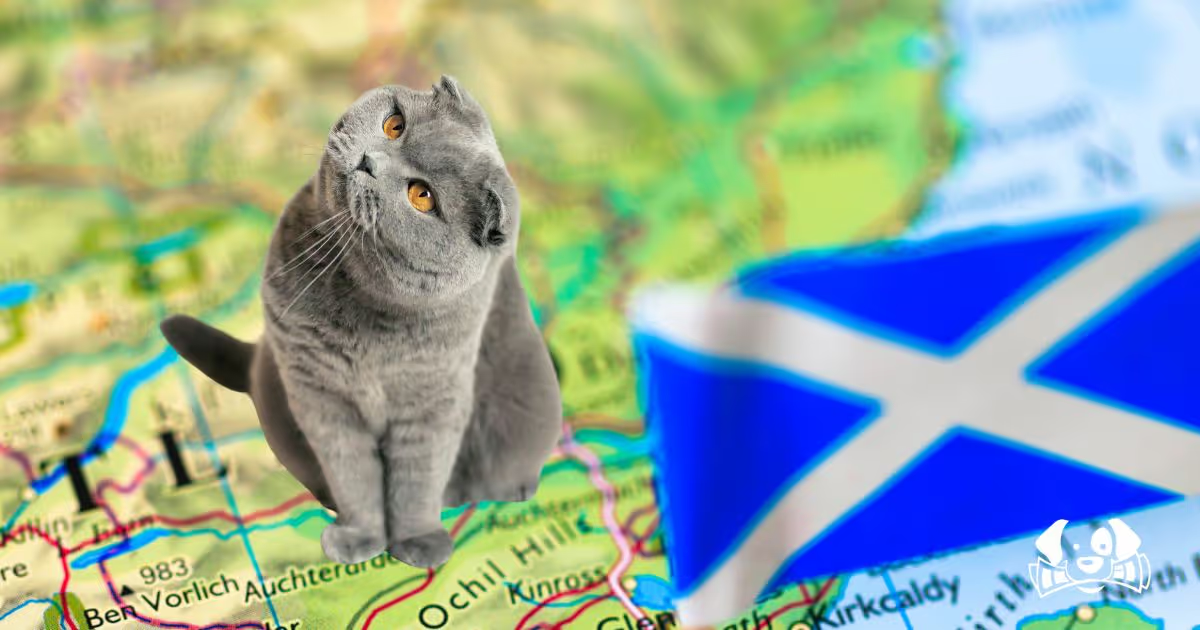Why Scotland Wants to Ban Residents from Owning Pet Cats
On February 2, 2025, Scotland’s ruling Scottish National Party (SNP) announced that it would consider recommendations from an independent expert panel that proposes restricting cat ownership in certain areas to protect local wildlife.
The proposal, detailed in a report titled "Responsible Ownership and Care of Domestic Cats in Scotland", argues that domestic cats have a significant negative impact on native animal populations. According to the Scottish Animal Welfare Commission (SAWC), pet cats in the UK kill an estimated 57 million small mammals, 27 million birds, and 5 million reptiles and amphibians each year.
This alarming data has sparked debate over whether Scotland should take legal action to curb the environmental impact of pet cats.

Proposed Solutions: Bans, Cat Containment Zones, and Leash Laws
The SAWC report outlines several potential measures to limit the damage caused by free-roaming pet cats. These include:
- Banning cats in high-risk conservation areas – New housing developments in rural areas could be legally required to prohibit cat ownership to protect endangered species.
- Mandatory "Cat Containment Zones" – In designated areas, cats would only be allowed to live indoors or within enclosed outdoor spaces, similar to restrictions already in place in Australia.
- Leash Laws for Cats – Owners could be required to keep their cats on a leash when outdoors to prevent them from hunting.
At this stage, these are only recommendations. However, the SNP has stated that it will seriously consider the report and conduct further studies on the potential benefits and drawbacks of these measures.
Backlash from Cat Owners and Animal Rights Groups
The proposal has faced immediate criticism from cat lovers and animal welfare organizations.
"Scotland is a nation of cat lovers," said Alice Palombo, spokesperson for Cats Protection, the UK’s largest feline welfare charity.
Palombo emphasized that cats play a crucial role in companionship, especially for elderly people, those living alone, and children learning responsibility.
"We believe that anyone capable of caring for a cat should have the right to experience these benefits," she stated.
Additionally, animal behaviorists argue that restricting outdoor access could be harmful to cats’ mental and physical health.
"Some cats tolerate indoor life, but many rely on outdoor access for essential activities like scratching, climbing, and exploring. Being confined indoors can lead to stress-related illnesses, excessive grooming, and behavioral issues," Palombo explained.
The suggestion that cats should be walked on leashes has also been criticized.
"Cats are not suited to walking on leashes—it can cause stress, anxiety, and long-term behavioral problems," Palombo added.
A Tough Decision Ahead
Scottish television presenter and journalist Jackie Bird has also publicly supported outraged cat owners, questioning whether the government should be prioritizing the welfare of wild rodents and snakes over beloved pets.
For now, the government remains undecided, balancing public outrage against environmental concerns. Whether wildlife conservation efforts will outweigh pet owners' rights remains to be seen.

.avif)
.avif)




























.avif)
.avif)
.avif)
.avif)
.avif)
.avif)
.avif)
.avif)
.avif)
.avif)
.avif)

.avif)
.avif)
.avif)
.avif)
.avif)
.avif)
.avif)
.avif)
.avif)
.avif)
.avif)
.avif)

.webp)
.webp)
.webp)
.webp)
.webp)
.webp)
.jpg)

